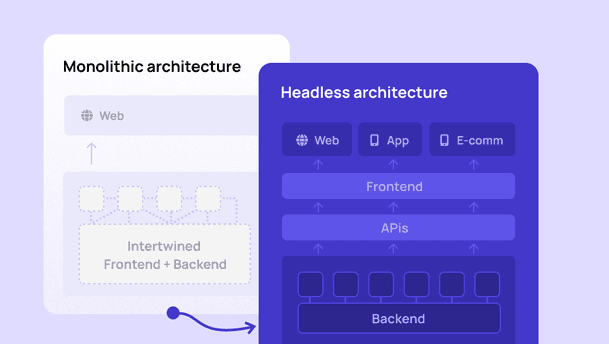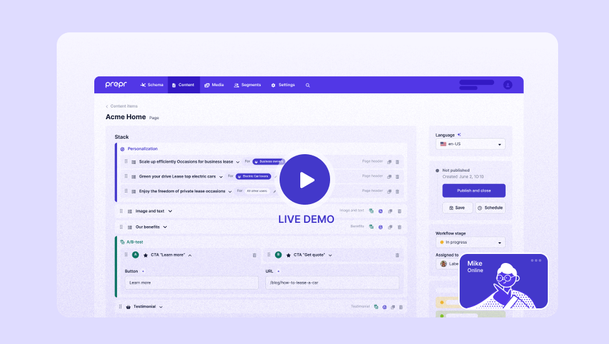WordPress
WordPress is arguably the world's most popular content management system, powering 42.7% of all websites on the internet. Originally, WordPress was used to create blogs, but nowadays it’s the engine behind a wide array of business websites, portfolios, and e-commerce stores.
A regular WordPress website consists of two ends: the frontend of the website and the backend. The front is the presentation layer that visitors get to see. The backend is the database and user interface, used to create and publish content. This setup is ideal for building and managing web-based platforms and straightforward websites.
WordPress Pros & Cons
👍 User-friendly
👍 Ideal for single-solution platforms
👍 Easy to install
👍 Fast time-to-market
👎 Creative limitations
👎 Prone to security breaches
We’ll get into the details below.
Headless CMSs
Aside from desktop websites, we also consume content through mobile sites, applications, and digital displays. This requires a more flexible CMS: and as a result, headless CMSs emerged. While there are ways to turn WordPress websites into advanced platforms, we’ll focus on comparing regular WordPress to headless-built platforms in this blog.






